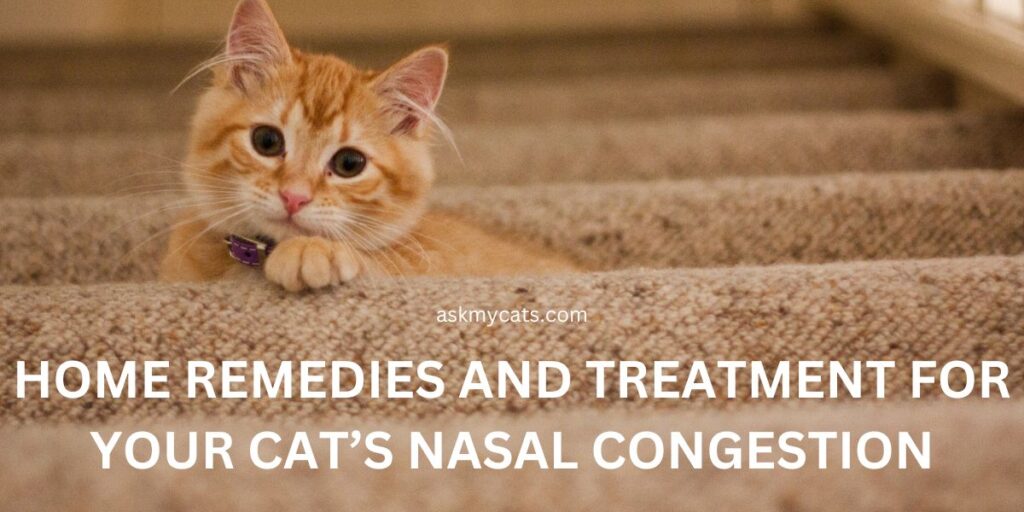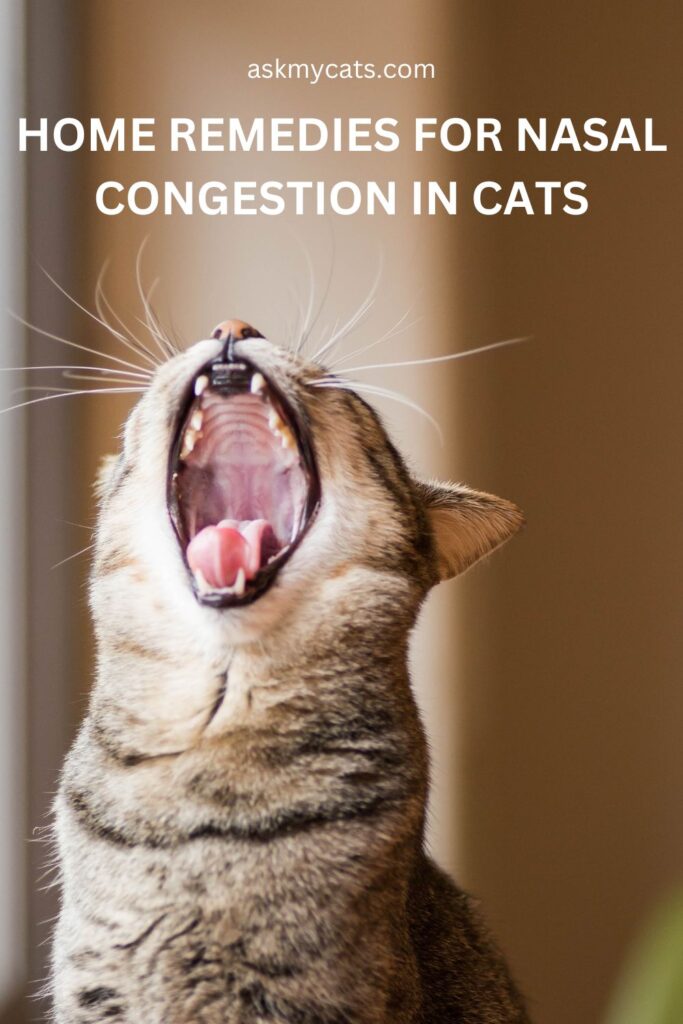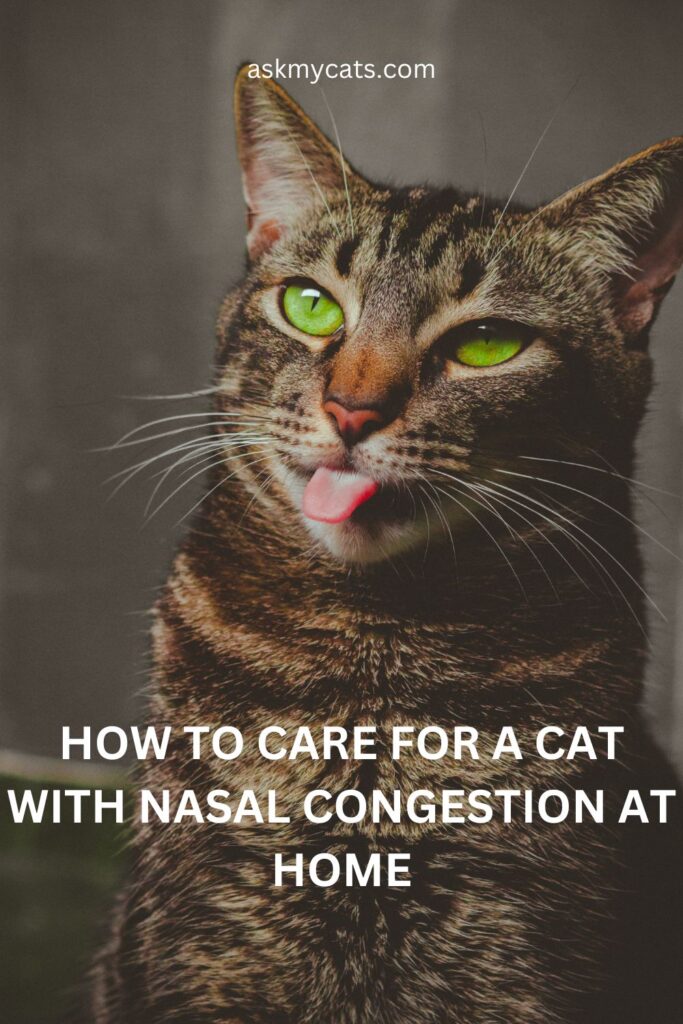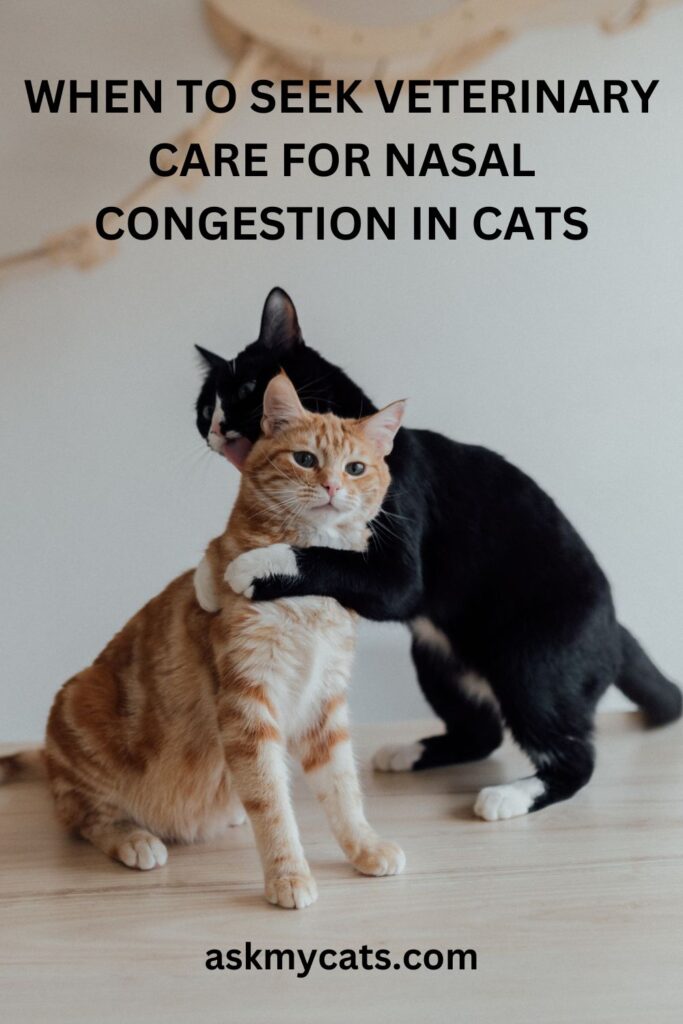As a cat owner, there’s nothing more distressing than watching your feline friend struggle with nasal congestion. Just like humans, cats can experience a stuffy or runny nose, making it difficult for them to breathe, eat, and even sleep comfortably.
While a trip to the vet may be necessary in severe cases, there are also a variety of home remedies and treatments you can try to help alleviate your cat’s nasal congestion.
In this article, we’ll explore some of the most effective and natural ways to help your furry companion breathe easier and feel better in no time.
Key Takeaways
- Home remedies for cat nasal congestion include steam therapy, saline drops, warm compress, hydration, and elevating their head while they sleep.
- Caring for a cat with nasal congestion at home involves keeping them comfortable, monitoring their breathing, encouraging fluid intake, keeping their nose clean, and administering medications as prescribed by a veterinarian.
- Seek veterinary care for nasal congestion in cats if the cat is struggling to breathe, has persistent nasal discharge, loss of appetite, or other concerning symptoms.
- It’s important to consult with a veterinarian before giving any medication to a cat to ensure safety and appropriateness for the cat’s specific condition.


Give Your Cat the Perfect Day
Get the Free Ebook!
Home Remedies For Nasal Congestion In Cats

Here are some home remedies you can try to alleviate your cat’s nasal congestion:
- Steam Therapy: Just like humans, steam therapy can help loosen mucus and ease breathing for cats. Bring a pot of water to a boil, then remove it from the heat and let it cool for a minute. Place the pot in a secure location and hold your cat nearby, allowing them to inhale the steam for 5-10 minutes.
- Saline Drops: Saline drops can help moisturize and loosen mucus in your cat’s nasal passages. Use a dropper to place a few drops in each nostril. Repeat this process two to three times a day.
- Warm Compress: Applying a warm compress to your cat’s face can help soothe nasal passages and provide relief. Soak a towel in warm water, wring it out, and place it on your cat’s face for a few minutes at a time.
- Hydration: Keeping your cat hydrated is essential for thinning mucus and keeping them comfortable. Encourage your cat to drink water and consider offering wet food to help increase its fluid intake.
- Elevate their Head: Elevating your cat’s head while they sleep can help reduce nasal congestion. Use a pillow or folded towel to prop up their head.
Must Read: Understanding Cat Nasal Congestion: Unblocking the Sniffles
How To Care For A Cat With Nasal Congestion At Home

Caring for a cat with nasal congestion at home can be challenging, but with the right care and attention, you can help your furry friend feel better.
Here are some tips on how to care for a cat with nasal congestion at home:
- Keep them Comfortable: Make sure your cat has a warm, comfortable place to rest while they recover. Provide soft bedding, a cozy blanket, and a quiet space away from noise and activity.
- Monitor their Breathing: Keep an eye on your cat’s breathing, and if you notice any signs of difficulty breathing or wheezing, seek immediate veterinary care.
- Encourage Fluid Intake: It’s important to keep your cat hydrated to help thin the mucus in its nasal passages. Offer your cat plenty of fresh water and wet food to encourage fluid intake.
- Keep their Nose Clean: Use a soft, damp cloth to gently clean your cat’s nose and remove any discharge or crustiness. Avoid using any harsh or scented products that could irritate their nasal passages.
- Administer Medications: If your cat’s nasal congestion is severe, your veterinarian may prescribe medications to help alleviate their symptoms. Follow their instructions carefully and administer any medications as directed.
- Provide Steam Therapy: Steam therapy can help relieve your cat’s nasal congestion. You can offer your cat steam therapy by bringing them into a steamy bathroom or using a humidifier in their living space.
Interesting Read: Runny Cat Nose: Causes, Symptoms, and Remedies
Over-The-Counter Medications For Cat Nasal Congestion
It’s important to note that before giving your cat any medication, you should always consult with a veterinarian first to ensure that it is safe and appropriate for your cat’s specific condition.
Some over-the-counter medications that may be recommended for cat nasal congestion include:
- Saline Nasal Drops: Saline nasal drops can help moisturize and loosen mucus in your cat’s nasal passages. Use a dropper to place a few drops in each nostril. Repeat this process two to three times a day.
- Antihistamines: Some antihistamines can help reduce nasal congestion in cats by decreasing inflammation in the nasal passages. However, not all antihistamines are safe for cats, and the dosages can vary depending on the size and health of your cat. It’s important to consult with a veterinarian before giving your cat any antihistamines.
- Decongestants: Decongestants can help reduce nasal congestion in cats by shrinking the blood vessels in the nasal passages. However, many decongestants can be dangerous for cats, and should only be given under the guidance of a veterinarian.
Must Read: How To Clean A Cat’s Nose? Safely and Effectively!
When To Seek Veterinary Care For Nasal Congestion In Cats

Nasal congestion in cats can be a sign of a range of underlying health issues, some of which can be serious or even life-threatening.
If your cat is exhibiting any of the following symptoms, it’s important to seek veterinary care as soon as possible:
- Difficulty breathing: If your cat is struggling to breathe or is panting, it’s a sign of respiratory distress and requires immediate veterinary attention.
- Persistent nasal discharge: If your cat has thick, yellow, or green discharge from their nose that lasts more than a few days, it may be a sign of a bacterial infection and requires veterinary care.
- Loss of appetite: If your cat is not eating or drinking, it’s a sign of a potentially serious underlying issue and requires prompt veterinary attention.
- Sneezing, coughing, or wheezing: These symptoms can indicate a range of respiratory issues, including infections, allergies, or even asthma. Veterinary attention is needed to determine the underlying cause and provide appropriate treatment.
- Lethargy or depression: If your cat is not behaving normally and appears lethargic or depressed, it may be a sign of an underlying health issue that requires veterinary attention.
Must Read: Home Remedies for Cat Runny Nose
Frequently Asked Questions
What causes nasal congestion in cats?
Nasal congestion in cats can be caused by a range of factors, including infections, allergies, foreign objects in the nose, and respiratory diseases.
How can I prevent my cat from getting nasal congestion?
Keeping your cat’s living environment clean and free of irritants, such as dust and smoke, can help prevent nasal congestion. Regular veterinary check-ups and vaccinations can also help prevent respiratory infections.
Can cats catch colds from humans?
Cats can catch some respiratory viruses from humans, such as the common cold, but it’s not very common.
Can nasal congestion in cats be treated at home?
Mild cases of nasal congestion in cats can often be treated at home with remedies like steam therapy and saline drops. However, it’s important to consult with a veterinarian first to ensure that home treatment is appropriate and safe for your cat.
When should I take my cat to the vet for nasal congestion?
If your cat is exhibiting symptoms like difficulty breathing, persistent nasal discharge, loss of appetite, or lethargy, it’s important to seek veterinary care as soon as possible.
Interesting Read: Why Is My Cat’s Nose Cold?
Final Words
Nasal congestion in cats can be a sign of a range of underlying health issues, some of which can be serious or even life-threatening.
While mild cases of nasal congestion can often be treated at home, it’s important to consult with a veterinarian first to ensure that home treatment is appropriate and safe for your cat.
If your cat is exhibiting any concerning symptoms, it’s important to seek veterinary care as soon as possible to determine the underlying cause and provide appropriate treatment.
Regular veterinary check-ups and preventative care can also help prevent respiratory infections and keep your cat healthy and happy.
Must Read: How To Make A Cat Sneeze To Clear Nose?
Interesting Read: Why Does My Cat Have A Dry Nose?
Interesting Read: Why Do Cats Have Wet Noses?
